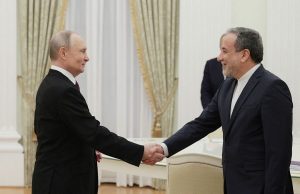How secure is Vladimir Putin? His Presidential Security Service consists of 2,500 personnel, his Federal Protective Service of 50,000 troops and the National Guard, essentially his personal army, of 350,000. What could possibly go wrong? Roman emperors might have had an idea.
It was Augustus who invented the Praetorian Guard (27 BC), a personal, prestigious protection force of 9,000 men, based in Rome and accompanying him abroad. It did not start well. The second emperor, Tiberius, came within an ace of being displaced by his captain of the Guard, Sejanus. The next emperor, the mad Caligula, was murdered by conspirators, including a Praetorian, and the Guard hauled the terrified Claudius out from behind a curtain and made him emperor — there had to be one to justify the Guard’s existence. In AD 68 the Guard deserted the next emperor, Nero, and as four successors fought for power, played a key role in deciding who would win, often at the flash of a checkbook.
We next hear of the Praetorians in AD 192, when they connived at the murder of Commodus. They assassinated his successor Pertinax after three months, then auctioned off the post to the highest bidder, Julianus, for a cool twenty times their annual pay each: he lasted sixty-five days. Septimius Severus replaced them all with trusted legionaries, mainly posted abroad; Diocletian turned them into imperial administrators and in 312 Constantine disbanded the lot.
Edward Gibbon saw the problem: “Such formidable servants are always necessary, but often fatal, to the throne of despotism… the emperors taught them to perceive their own strength, and the weakness of the civil government; to view the vices of their masters with familiar contempt, and to lay aside that reverential awe, which distance only, and mystery, can preserve towards an imaginary power… nor was it possible to conceal from them, that the person of the sovereign, the authority of the senate, the public treasure, and the seat of empire, were all in their hands.”
And the more who now stand behind Putin, the more there are to stab him in the back.
This article was originally published in The Spectator’s September 2023 World edition.

























